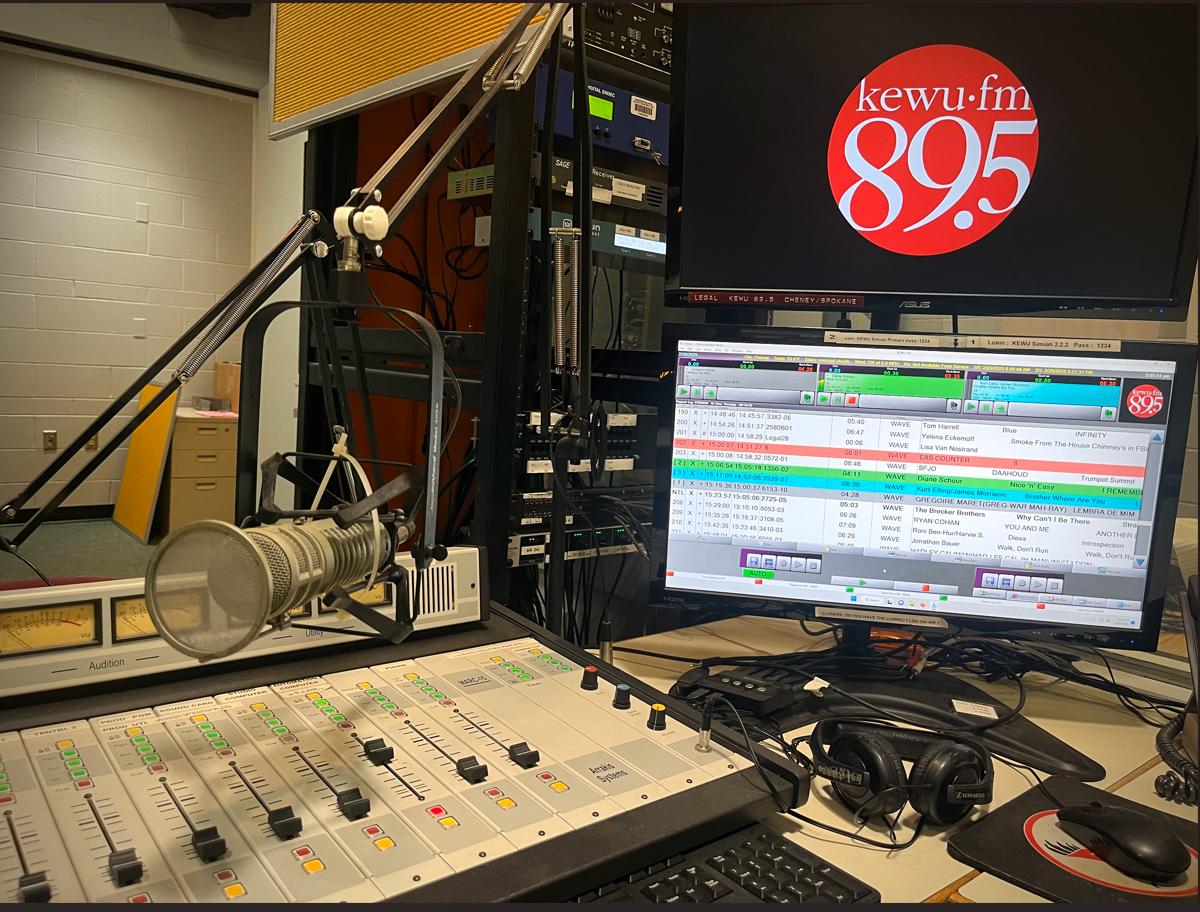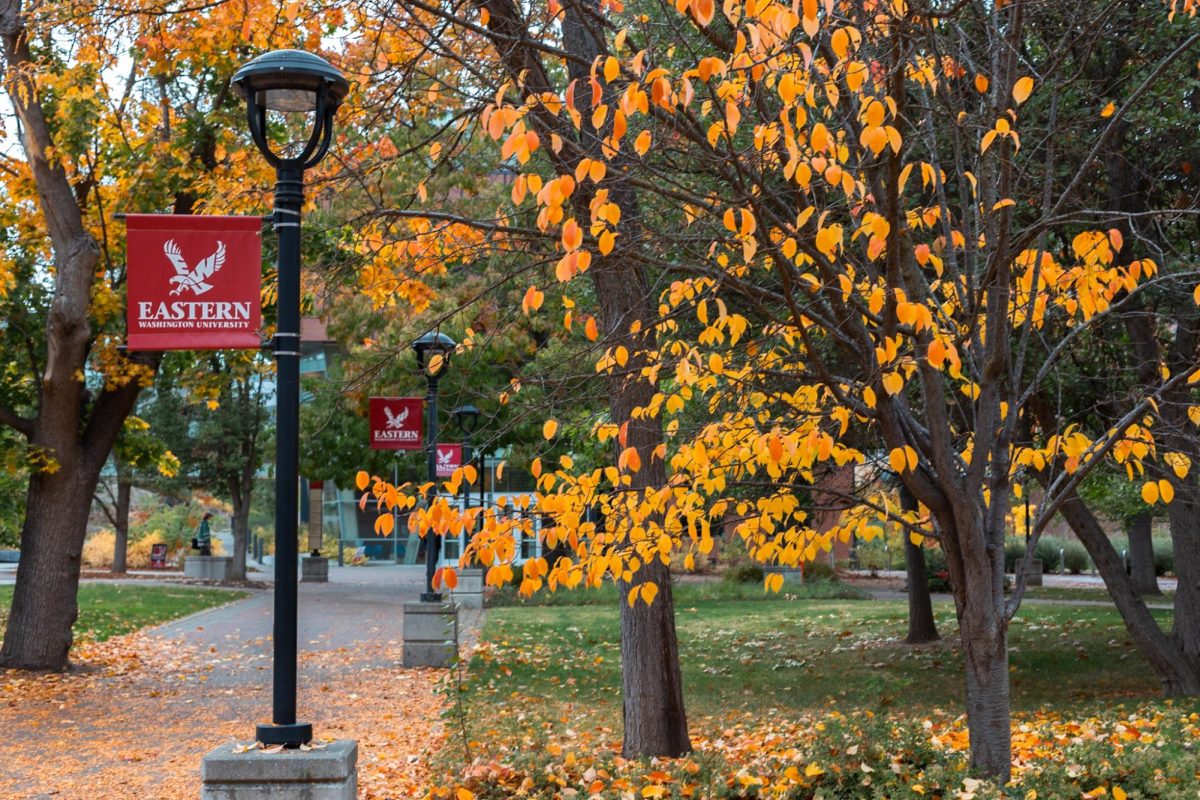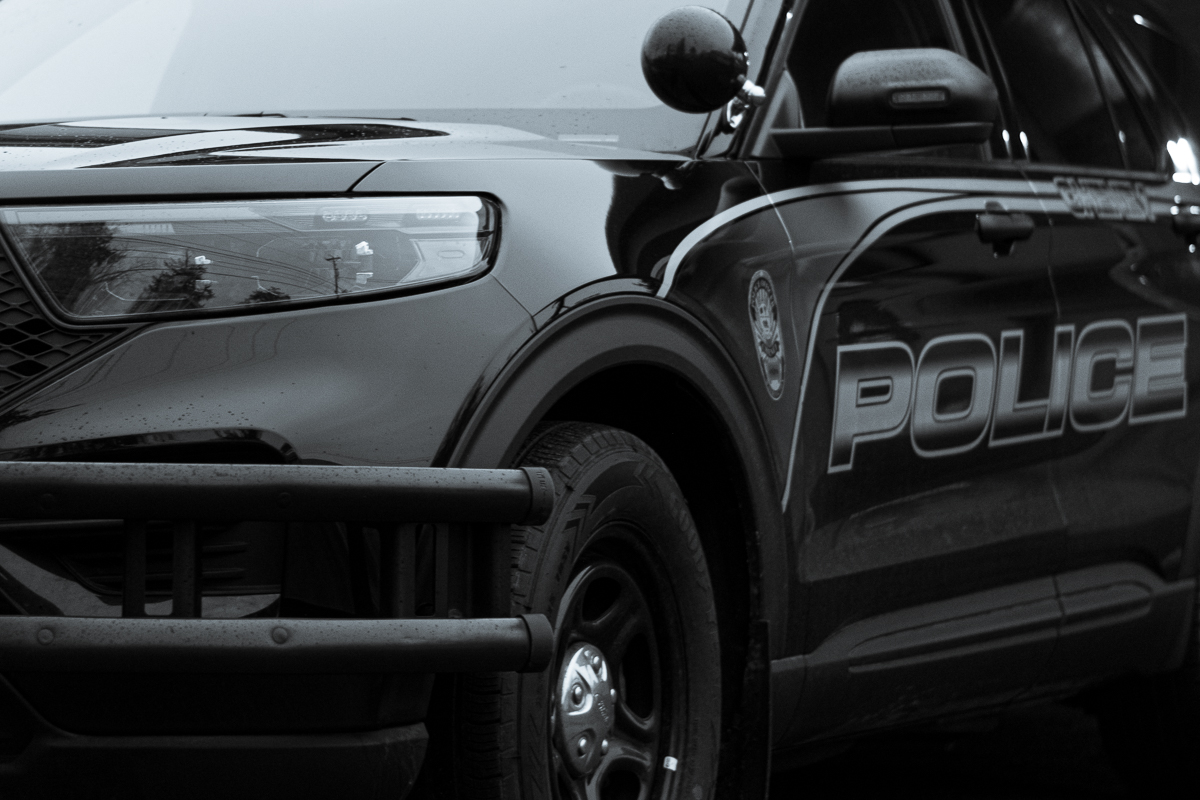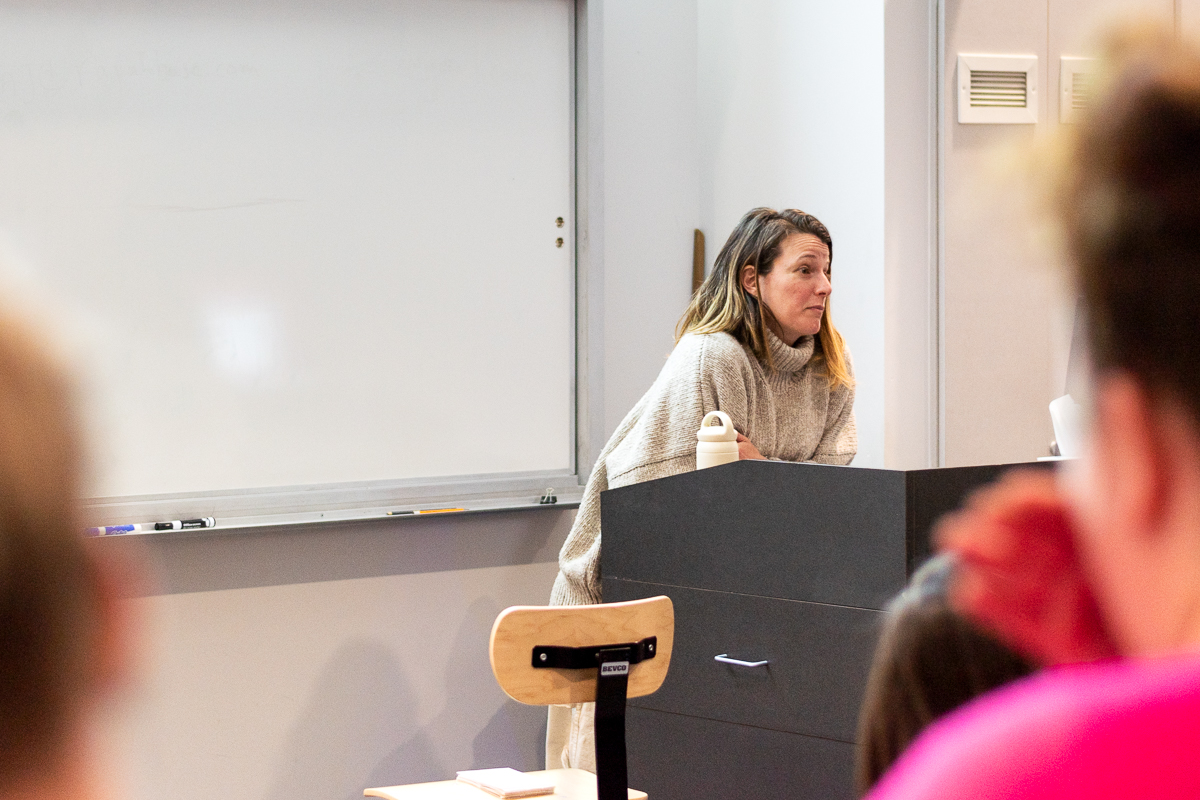A student fighting adversity teaches the basics of what ‛ally’ means
A person yells out a sexually charged slur and silence follows while tension and hatred grow.
There are no allies around to help.
Pride Center Coordinator Sandy Williams and Angela Rak help Eastern provide a way to deal with situations that may make someone in the LGBT community uncomfortable. The Pride Center has developed a 50-minute training course for students, staff and faculty teaching the fundamentals of what it means to be an ally.
Rak said she presents the class or dorm with a PowerPoint and incorporates activities as well.
“If we have enough time we do the human sculpture,” she said. Students will pose to illustrate a certain word like “oppression” without any talking. The poses are then shown to the rest of the students. Afterward, the students who posed are asked about how they felt.
“One time a student said they felt terrible having to stand and point at someone in a judging way,” said Rak.
Williams said the training’s intention is to help make students feel safe on campus.
“After the staff goes through training, they can get a sticker saying they are a safe person,” she said.
The PowerPoint Rak uses in her presentation defines an ally as, “any non-lesbian, non-gay man or non-bisexual whose attitude and behavior are anti-heterosexist and who works toward combating homophobia and heterosexism, both on a personal and institutional level.”
The training began when Williams first came to Eastern. According to Williams, the training is called the “Welcoming Project.” The next event is on Nov. 13-15.
“Not everyone can be in the Pride Center all the time,” said Williams, “there’s a need to have welcoming people everywhere on campus, not just one place.”
Heidi Smith, a general academic adviser and Pride Center volunteer, attended one of the staff training sessions. She said the experience was enlightening.
“In heart and spirit I was, but before [training] I never considered myself [an ally],” Smith said.
Rak said she was first ignorant of the LGBT community, but then she became curious about the pride center and wanted to be friends with the people there.
The student training started in October of 2011.
“Angela [Rak] wanted to do something for the students,” Williams said. That is when they adapted the staff training to make a student version of the training noted Williams.Martin Luther King Jr. is Rak’s hero.
She said she wanted to embody his views, which were to make everyone feel equal and have the ability for self-expression without consequence.
Rak said she creates events on campus because it creates a positive environment.
“Self-expression is close to my heart,” Rak said.
According to Rak, she wants to reach out to those who are unaware of the ally concept. “I’m trying to reach out to people who are what I used to be.”
In the future, the ally training should not be for just the pride community but for all groups of people, noted Williams.
Smith said that the ally community is supportive of itself and “that there’s help and support for allies from allies.”
“We all have each other’s backs,” Smith said.
Overall, the training has been shown respect, said Rak.
“No one has come up to me and pointed and said ‘You’re that girl who does that ally training. I don’t like you,’” Rak said,
Rak said she is proud of what she is doing and she enjoys being an advocate for the LGBT community.
“They’re my friends. I love them,” Rak said.
















